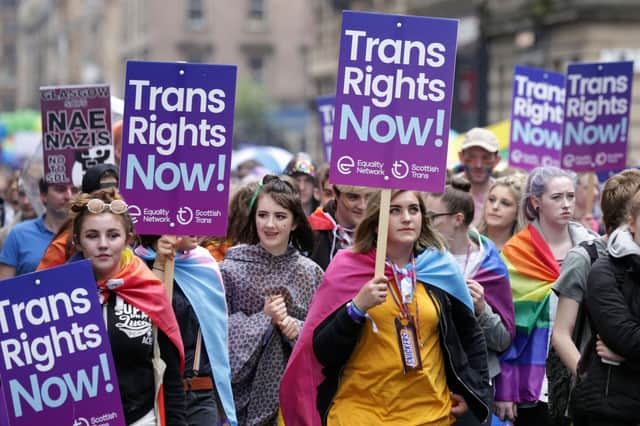Scotland's Gender Recognition Reform Bill still requires people to take a serious legal step before changing their birth certificate – Vic Valentine


Throughout an often intensive public discussion of whether Scotland’s parliament should make it easier for trans people to change the sex recorded on our birth certificate so it reflects who we truly are, there has been a lot of misunderstanding of what the new process might look like. It would continue to be a serious legal step, with a process that reflects this.
One thing currently required, which would remain if the bill passes, is that a person must sign a statutory declaration – a witnessed, legal oath. The bill requires a person to swear that they have already been living as a man or woman for at least three months, and that they intend to do so permanently. The people who can witness this declaration are tightly defined: they include city councillors, Justices of the Peace (a judge) and notary publics (certain solicitors). When you make your statutory declaration, you must prove your identity.
Advertisement
Hide AdAdvertisement
Hide AdI remember what it was like when I was first figuring out who I was. I had spent many years feeling like something didn’t quite fit, never truly comfortable in my skin. Figuring out that I was trans was like a weight lifted off my shoulders, with things finally making sense. But I spent many months deciding if I was really sure. Working up the courage to tell my mum, and my friends. Waiting until I was ready to formally change my name.
These were all things I did after lots of soul searching. I would never have signed a legal oath, stating I was intending to live permanently in my gender until I was sure I meant it. But more significantly, until I was confident enough in who I was to have that witnessed by a total stranger, in a position of some importance.
So what will change? Currently, you have to send your statutory declaration to a tribunal of doctors and judges who never meet you, alongside a large amount of intrusive evidence. This includes a psychiatric diagnosis, a medical report detailing very personal choices you have made about your medical treatment, and things like your passport and utility bills, demonstrating that what you have sworn – that you are living permanently as a man or a woman – is true.
Trans people object to these requirements because they mean that the decision to be recognised as who we truly are doesn’t really lie in our own hands. Instead, the word of doctors and judges is seen as more important, about something as personal as our own identity. An identity that every trans person I know has given deep, significant thought to, in order to be at peace with ourselves and be accepted and supported by the important people in our lives.
So I very much hope that when MSPs are asked to vote on this bill again, it receives the same overwhelming support as last time. Because that will be a vote for a process for legal recognition that is a serious one, as it should be. But also one that puts trans people ourselves at the centre of being recognised as who we truly are.
Vic Valentine is manager of Scottish Trans
Comments
Want to join the conversation? Please or to comment on this article.